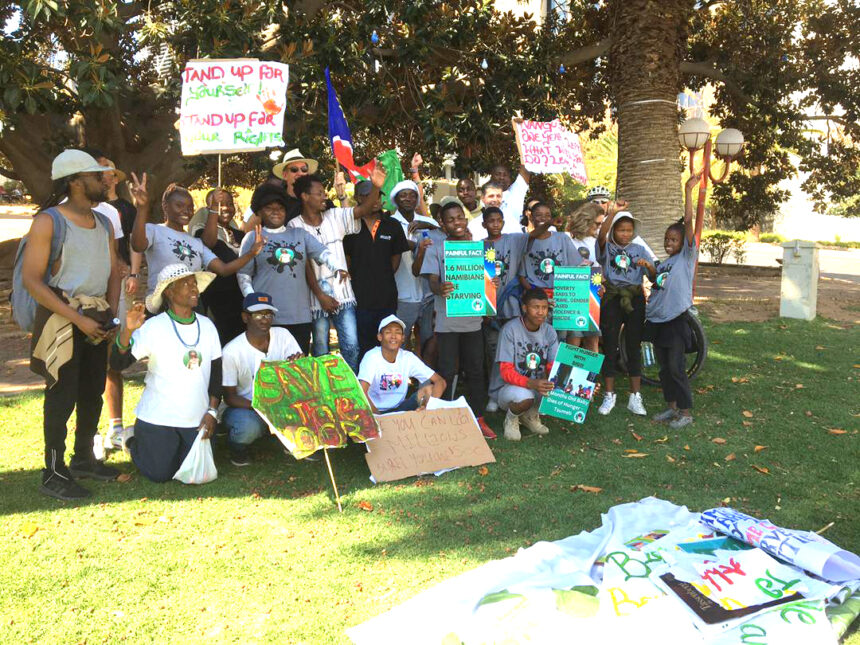Charles Ndeumane
As the national elections approach, social justice activists continue pushing for the implementation of the universal Basic Income Grant, which some critics see as a vote-winning strategy.
However, pro-BIG activists say the grant should not be used as an electioneering tool, just for hopeful and destitute Namibians to be left hanging after the elections, despite promises to implement it during campaigns.
BIG activists have been pushing for a universal grant of N$500 per month for all Namibians between the ages of 18 and 59.
Rinaani Musutua, one of the social justice activists spearheading the intervention, said after 19 years of pushing for the implementation of the grant, they had realised that it is only during election years that politicians tend to listen to the people. That is why the coalition is actively campaigning for the grant this time.
“Before the 2019 elections, the government promised that it would implement the universal basic income grant, but nothing has been done up to date. Namibia continues to be the world’s second-most unequal country in terms of income, and Swapo didn’t come when we invited them to the public meeting to tell the nation what they are doing to eradicate these economic inequalities; it shows that they have no policies in place to address these issues,” said Musutua.
She said the Ministry of Gender Equality, Poverty Eradication, and Social Welfare’s claim that it has converted the food bank into a basic income grant is not factual, as the grant only benefits about 8 000 Namibians.
“The ministry converted the food bank into a Harambee cash grant, which gives N$600 to about 8 000 Namibians. What will a family of six do with N$600? This is not a universal basic income grant like the one we are proposing,” she stated.
The activists recently held a public meeting in Windhoek attended by political parties and independent presidential candidates, where they addressed the nation on their plans to tackle issues around social and economic inequalities.
Activists expressed disappointment in the ruling party’s failure to attend a public meeting for political parties and individual politicians to tell the nation how they plan curbing social and economic inequalities in the country.
However, many other political parties and politicians attended the meeting and spelt out their stance on the matter.
Affirmative Repositioning leader and presidential candidate Job Amupanda did not rule out the implementation of the BIG but raised concerns about the availability of resources, stating that last time his party presented a Fishing Bill to Parliament that would benefit the poor, the Fishrot accused allegedly “took advantage of the bill and made it look like it was a black people empowerment bill that was only meant to benefit a few.”
Independent presidential candidate, journalist-turned-politician Frans Koolike, said it is shocking that the government did not jump on board to implement the grant.
“It is already too late for the government to be delaying the implementation of the basic income grant. As a country, we don’t have a remedy for poverty alleviation. What do you do with someone sitting at home without any form of income? The resources are available to cater for this grant; it’s all about decisiveness and willingness to implement it,” he said.
Ally Angula, another independent presidential candidate, said the high economic inequalities in the country are a direct result of apartheid policies that are still being used by the current government.
She said apartheid was more about economic discrimination than racial discrimination, so it is very important to get rid of such policies.
Republican Party representative Vistoh Sabisa said the party no longer supports any policies that date from apartheid, because they are only meant to benefit a few. –mrndeumaneraycharles@gmail.com



